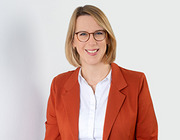Since the Patient Data Protection Act does not require physicians to transfer their notes to the ePA, no technical requirements have been created for this. Accordingly, doctors who wish to make their entries available to their patients voluntarily can only transfer them to the ePA with a great deal of effort.

© WavebreakMediaMicro - stock.adobe.com
Junge Ärztin und ältere Patientin im Gespräch vor einem Laptop.
German electronic patient record will start without visit notes
On January 1, 2021, the electronic patient record (ePA) will be launched. It will provide patients with a central storage location for their medical documents. However, it will not contain visit notes. This means that anyone wishing to read their doctor's notes, for example on their medical history, treatment options or further steps, will still have to formally request paper copies of the documentation.
Content
Unused opportunity
This means that the opportunity to make physicians' records easily accessible to patients has not yet been taken. A recent representative survey conducted by the Bertelsmann Stiftung shows that the public wants this access: two out of three respondents would read doctors' notes if they could access them digitally.
The digital transformation now offers the chance to turn a securitized patient right into a living reality. That would be a big step toward empowering patients.
Brigitte Mohn, member of the Bertelsmann Stiftung Executive Board
Successful pilots in other countries
In countries such as the USA, Sweden or Norway, it is already common practice today to unlock discussion notes after successful pilot phases. The idea of doctors voluntarily sharing their notes with patients, known as OpenNotes, has several advantages: doctors write their entries in a more layman-like manner. Patients can follow their visits to the doctor more closely and thus better understand their illness. In addition, they adhere more closely to the drug therapy and become more actively involved in the treatment. This also supports the change towards a more trusting and open doctor-patient relationship. A first German pilot project at the University Hospital Witten-Herdecke confirms these positive experiences from abroad.





